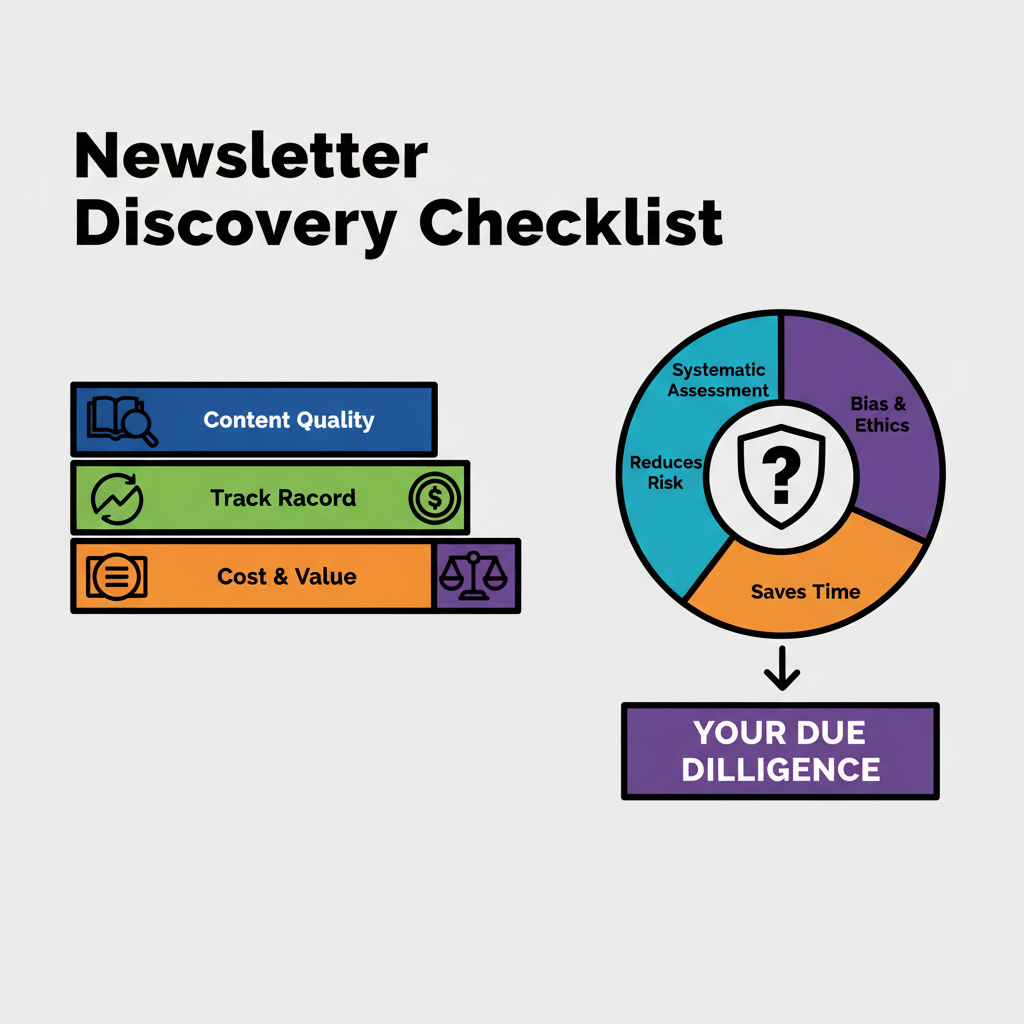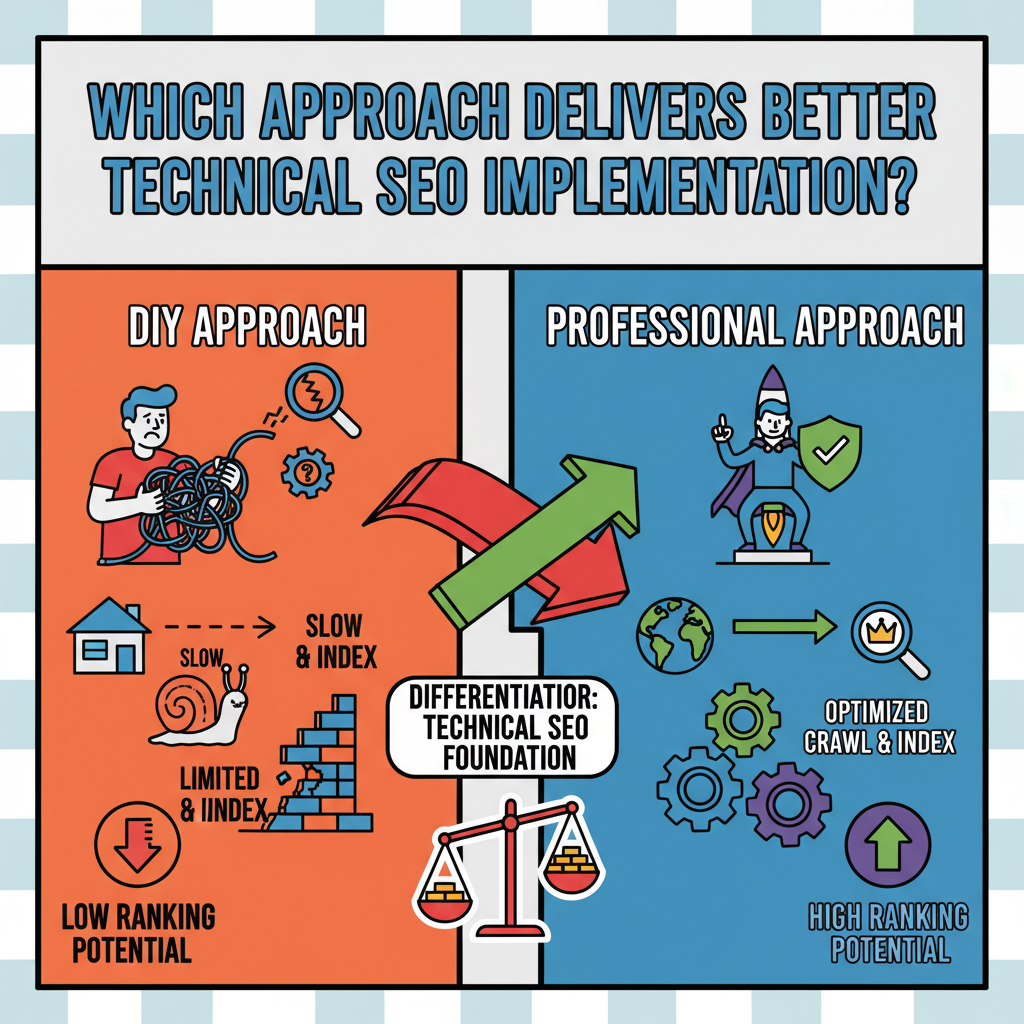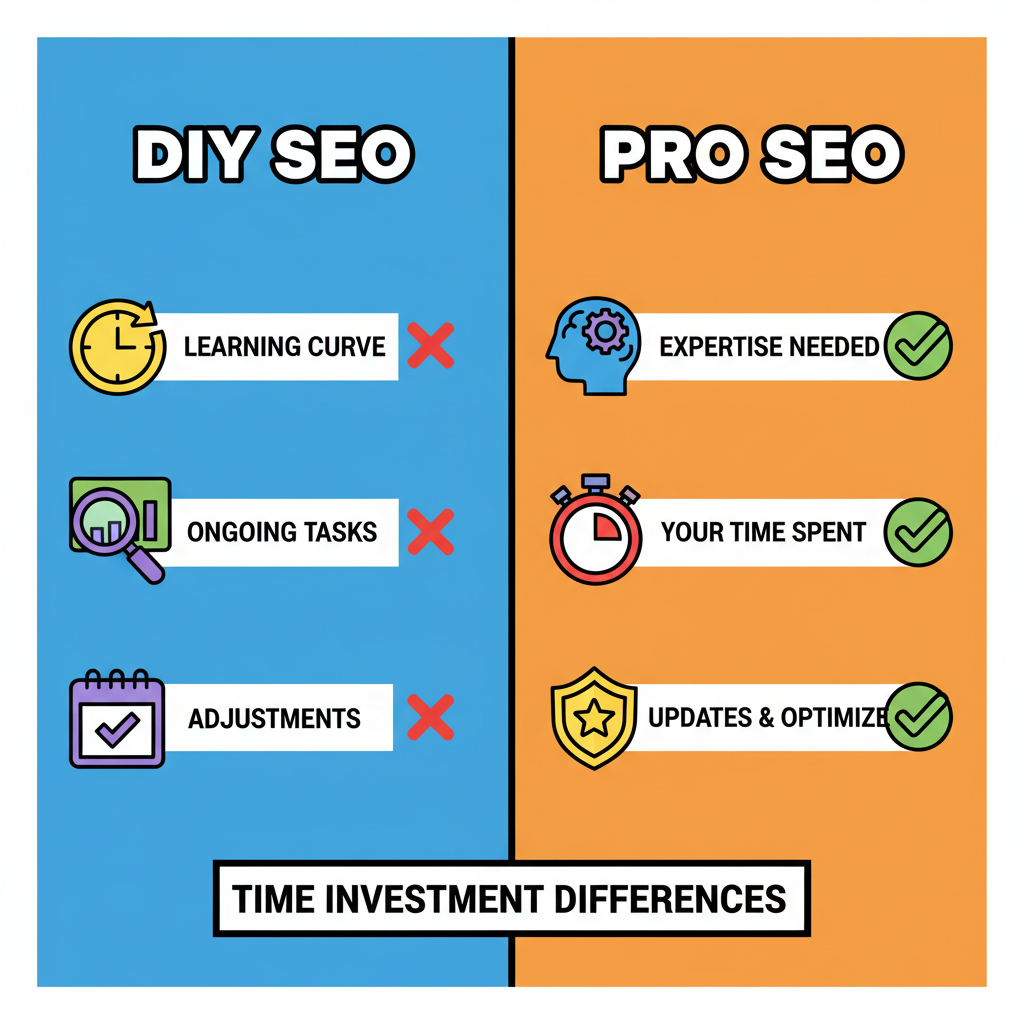What Makes DIY SEO an Attractive Option for Website Owners?
Posted by
Related reading
What Does SEO Automated Actually Mean?
How to Implement SEO Automated Solutions That Actually Drive Results Implementing automated SEO can transform your digital marketing strategy, but only when don...
The Complete Guide to Building a Successful Blog Post Website in 2026
The Complete Guide to Building a Successful Blog Post Website in 2026 Creating a blog post website has become one of the most powerful ways to establish an onli...
What Exactly Is Keyword Research in SEO?
What Makes Keyword Research in SEO Different from General Keyword Research? When most people think about keyword research, they picture brainstorming popular se...
DIY SEO vs Professional SEO Services: Which Approach Will Improve SEO Results Faster?

When you're looking to improve SEO performance for your website, you face a critical decision: should you tackle search engine optimization yourself or invest in professional SEO services? This choice significantly impacts your timeline, budget, and ultimate success in climbing search rankings. Both approaches have distinct advantages and drawbacks that can make or break your digital marketing efforts. In this comprehensive comparison, we'll examine the key differences between DIY SEO and professional services to help you determine which path will deliver the SEO improvements your business needs.
What Makes DIY SEO an Attractive Option for Website Owners?

DIY SEO appeals to many business owners because it offers complete control over their optimization strategy while keeping costs relatively low. When you manage SEO internally, you maintain direct oversight of every decision and can pivot quickly when market conditions change.
The cost advantage of DIY SEO is undeniable. Instead of paying monthly retainers that can range from $1,000 to $10,000 or more, you're investing primarily in tools, training, and your time. Popular SEO platforms like SEMrush, Ahrefs, or Moz typically cost between $99 to $399 monthly, making them significantly more affordable than full-service agencies.
Learning SEO skills also provides long-term value for your business. Understanding how search engines work, what drives organic traffic, and how content impacts rankings gives you valuable insights into digital marketing that extend beyond just SEO. This knowledge becomes particularly valuable when making website changes, launching new products, or expanding into new markets.
However, DIY SEO requires substantial time investment and continuous learning. Search engine algorithms evolve constantly, and staying current with best practices demands ongoing education and adaptation.
How Do Professional SEO Services Improve SEO Outcomes?
Professional SEO services bring specialized expertise, advanced tools, and proven methodologies that can accelerate your path to improved search rankings. SEO agencies and consultants have typically worked across multiple industries and have encountered various optimization challenges, giving them valuable experience to draw upon.
The expertise factor cannot be understated. Professional SEO specialists understand technical complexities like site architecture, server optimization, and advanced schema markup that might overwhelm DIY practitioners. They also have established relationships with industry tools and can access enterprise-level software that individual businesses might find cost-prohibitive.
According to Search Engine Land's industry research, businesses working with professional SEO services typically see measurable improvements within 4-6 months compared to 8-12 months for DIY efforts. This acceleration comes from avoiding common mistakes and implementing comprehensive strategies from day one.
Professional services also provide scalability. As your business grows, SEO agencies can expand their efforts accordingly, adding team members or services without requiring you to hire and train internal staff. This flexibility becomes crucial when managing large websites or multiple locations.
The primary drawback of professional services is cost, which can strain budgets for smaller businesses or startups. Additionally, you're dependent on external providers for strategy and execution, which may not align perfectly with your company culture or immediate priorities.
Which Approach Delivers Better Technical SEO Implementation?

Technical SEO represents one of the most significant differentiators between DIY and professional approaches. This foundational element directly impacts how search engines crawl, index, and rank your website.
DIY Technical SEO Capabilities
DIY practitioners can handle basic technical optimizations using readily available tools and plugins. WordPress users, for example, can install SEO plugins like Yoast or RankMath to address fundamental technical issues like meta tags, XML sitemaps, and basic schema markup.
Google's free tools, including Google Search Console and PageSpeed Insights, provide valuable technical insights that DIY SEO practitioners can act upon. These platforms identify crawl errors, loading speed issues, and mobile usability problems that impact search performance.
However, complex technical issues like server response optimization, advanced JavaScript rendering problems, or large-scale site migrations often exceed DIY capabilities. These situations require deep technical knowledge and specialized tools that individual businesses typically don't possess.
Professional Technical SEO Advantages
Professional SEO services excel in technical optimization because they have dedicated technical specialists and enterprise-grade auditing tools. They can identify and resolve complex issues like duplicate content across large sites, implement advanced structured data, and optimize site architecture for maximum crawl efficiency.
| Technical SEO Factor | DIY Capability | Professional Capability |
|---|---|---|
| Basic Meta Optimization | Excellent | Excellent |
| Site Speed Optimization | Good | Excellent |
| Schema Markup | Limited | Advanced |
| Server Configuration | Poor | Excellent |
| Large Site Migrations | Poor | Excellent |
| Advanced Analytics Setup | Limited | Excellent |
How Does Content Strategy Differ Between DIY and Professional SEO?
Content creation and optimization strategies vary significantly between DIY and professional approaches, directly impacting your ability to improve SEO through valuable, search-optimized content.
DIY content strategies often focus on basic keyword optimization and regular publishing schedules. Business owners understand their industry and audience intimately, which can lead to authentic, valuable content that resonates with readers. This insider knowledge is difficult for external agencies to replicate immediately.
When creating content internally, you can ensure brand voice consistency and incorporate real business experiences that add credibility. Understanding how to master intent-based blog posts creation becomes crucial for DIY practitioners who want to create content that both serves users and improves search rankings.
Professional SEO services bring sophisticated content strategies that integrate keyword research, competitor analysis, and search intent mapping. They use advanced tools to identify content gaps, optimize for semantic search, and create comprehensive content clusters that establish topical authority.
Professional content teams also understand the nuances of content optimization for different search intents, whether informational, commercial, or transactional. This strategic approach often results in higher-converting organic traffic because content aligns more precisely with user needs and search behavior.
The collaboration between professional content creators and SEO specialists ensures that every piece of content serves multiple purposes: engaging readers, establishing expertise, and improving search visibility across relevant keywords.
What Are the Time Investment Differences?

Time requirements represent a crucial factor when deciding between DIY and professional SEO approaches, especially for business owners juggling multiple responsibilities.
DIY SEO demands significant ongoing time investment. Learning fundamental concepts, staying current with algorithm updates, conducting keyword research, optimizing content, and monitoring performance can easily consume 10-20 hours weekly. This time investment often conflicts with other business priorities, leading to inconsistent SEO efforts.
The learning curve for DIY SEO is substantial. Understanding how different optimization techniques work together, interpreting analytics data, and troubleshooting issues requires months or years of experience. During this learning period, your website may miss optimization opportunities or suffer from well-intentioned but misguided changes.
Professional SEO services eliminate most time requirements from business owners while providing consistent, expert-level attention to your search optimization. Your primary time investment involves initial strategy discussions, periodic progress reviews, and providing industry insights that inform content creation.
However, professional services require time for relationship building and communication. Ensuring that external providers understand your business goals, brand voice, and target audience requires ongoing collaboration that some business owners find challenging.
How Do Results and ROI Compare Between Both Approaches?
Measuring success and return on investment differs significantly between DIY and professional SEO approaches, impacting both short-term outcomes and long-term business growth.
DIY SEO typically shows slower initial results but can provide excellent long-term ROI for businesses willing to invest time in learning and consistent implementation. According to BrightEdge research, organic search drives 53% of website traffic, making the long-term benefits of successful DIY SEO substantial.
The challenge with DIY approaches lies in avoiding costly mistakes that can delay results or even harm search rankings. Common errors like keyword stuffing, poor link building practices, or technical implementation mistakes can set back SEO progress by months.
Professional SEO services typically deliver faster initial improvements because they avoid beginner mistakes and implement comprehensive strategies immediately. The expertise and tools that professionals bring often result in more efficient optimization and quicker ranking improvements.
However, professional services require ongoing investment that may strain budgets, particularly for smaller businesses. The key is ensuring that the improved results justify the additional costs through increased organic traffic, leads, and revenue.
Which Approach Should You Choose to Improve SEO?
The decision between DIY and professional SEO depends on several critical factors specific to your business situation, goals, and resources.
Choose DIY SEO if you have time to dedicate to learning and implementation, operate on a limited budget, manage a smaller website, and want to develop internal marketing capabilities. DIY approaches work particularly well for local businesses, personal brands, or companies in niche industries where business owners possess deep subject matter expertise.
Professional SEO services make more sense for businesses with larger websites, competitive industries, limited internal time, or aggressive growth goals. Companies planning major website changes, launching new products, or expanding into new markets often benefit from professional expertise during these critical periods.
Consider a hybrid approach that combines internal content creation with professional technical optimization and strategy development. This model allows you to maintain control over brand voice and industry expertise while leveraging professional skills for complex technical and strategic elements.
Conclusion
Both DIY and professional SEO approaches can effectively improve SEO performance, but they serve different business needs and circumstances. DIY SEO offers cost-effectiveness and complete control but requires significant time investment and ongoing learning. Professional services provide expertise, faster results, and comprehensive strategies but come with higher costs and external dependencies.
The most successful businesses often start with one approach and evolve their strategy as their needs change. Whether you choose DIY or professional SEO, consistency and quality remain the keys to long-term search engine success.
Ready to improve SEO results for your website? Fast SEO Fix offers automated SEO solutions that combine the cost-effectiveness of DIY approaches with professional-grade optimization techniques. Explore our platform to discover how you can accelerate your search engine optimization without the complexity or high costs of traditional SEO services.

Stefan Winter
Founder & SEO Expert
Founder of Fast SEO Fix and SEO automation expert. Stefan built Fast SEO Fix to solve the tedious problem of manual SEO work. He specializes in SEO optimized content generation, keyword research, and automated SEO strategies.